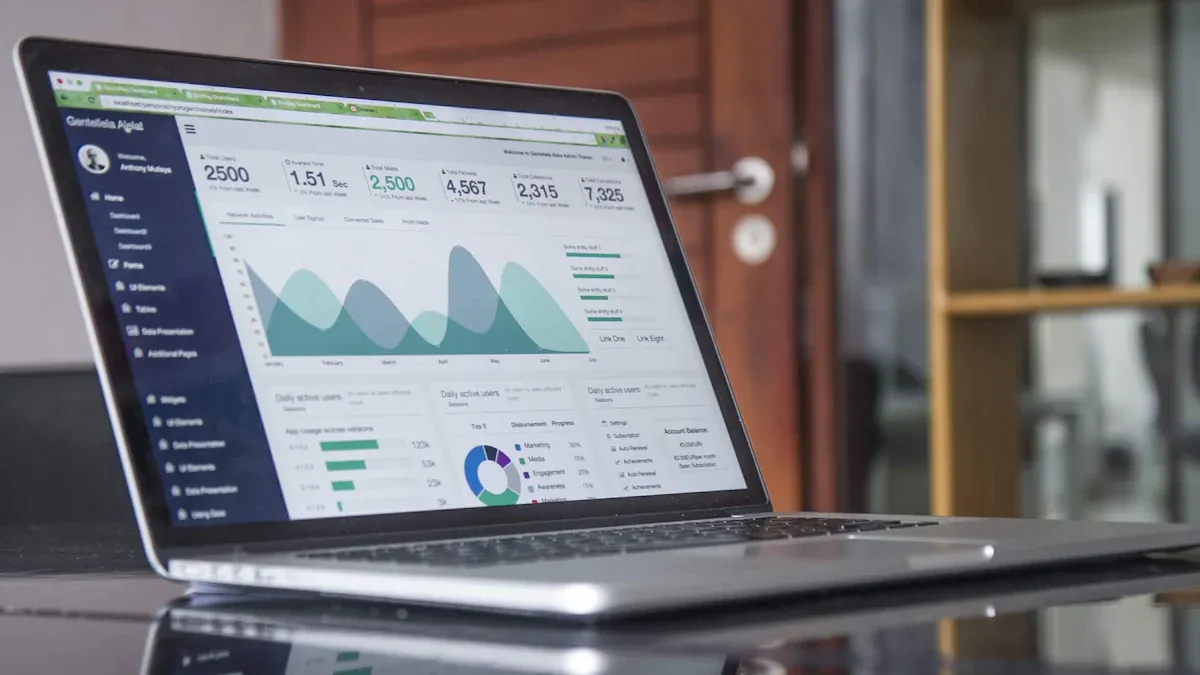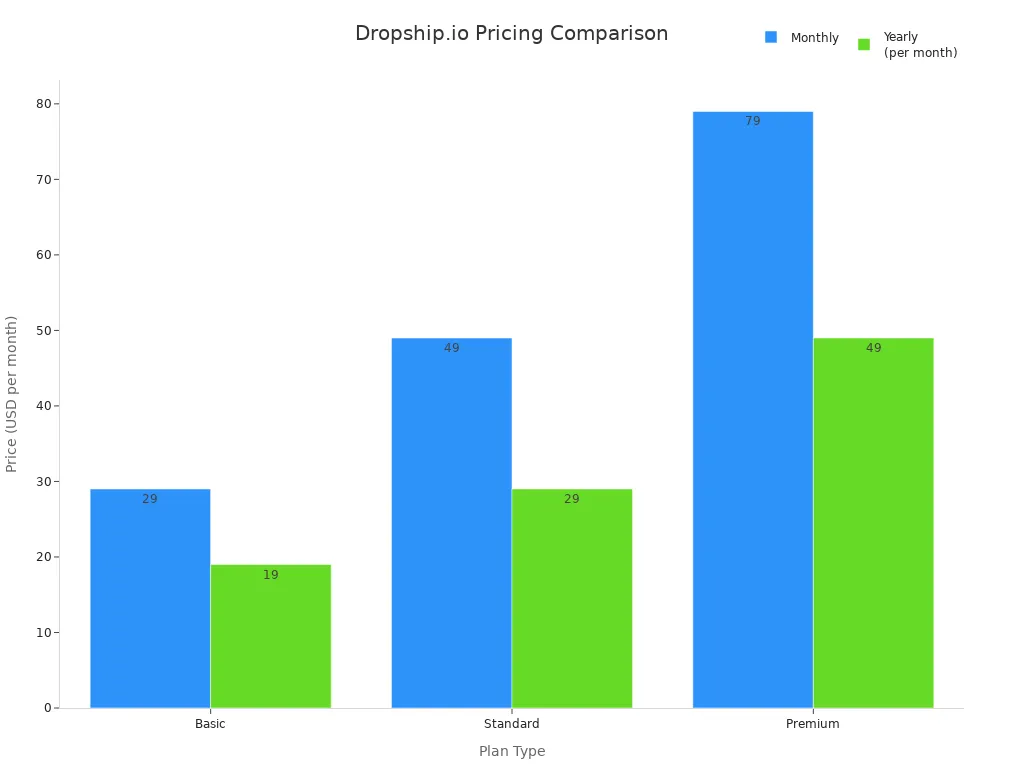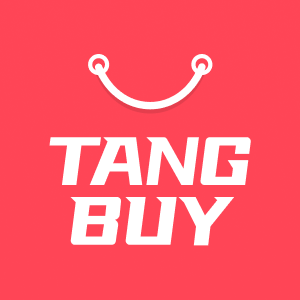Best AI-Powered Tools Every Dropshipper Should Use to Find Winning Products

If you want to find winning products quickly, you should look at tools like Dropship Spy, Tradelle, Sell the Trend, ScrapWave, and Dropship.io. These AI-Powered Tools make product research much simpler. They study trends and customer actions as they happen. You get ideas about what will sell soon, not just guesses.
AI-Powered Tools | Manual Methods |
|---|---|
Automate data analysis | Needs you to collect data yourself |
Give predictions | Use old experiences and guessing |
Make decisions easier | Takes a lot of time to decide |
You should always think about what works best for your business. The right tool can help you see trends before other people do.
Key Takeaways
AI-powered tools like Dropship Spy and Sell the Trend help with product research. They look at trends and customer behaviour.
These tools save you time. You can grow your business instead of collecting data by hand.
Pick tools that match your needs and budget. Not every dropshipper needs every tool.
Search for features like trend analysis and competitor insights. Automated order processing can also help your dropshipping plan.
Use AI insights with your own market research. This helps you choose products that your audience will like.
Check and update your tool settings often. This stops old information from hurting your business.
Try free trials before you pay for a subscription. This makes sure the tools work for you.
Connect your tools for smooth data flow. This makes your work easier and helps you be more efficient.
AI-Powered Tools Overview

Top Tools List
If you want to sell products quickly, you need good tools. AI-Powered Tools help you stay ahead in dropshipping. Here are some popular ones you can try:
Dropship Spy: Finds trending products and gives you live data.
Tradelle: Helps you find top products and check your rivals.
Sell the Trend: Spots hot items and shows how they do on sites.
ScrapWave: Looks at shops and social media for popular products.
Dropship.io: Uses AI to help with product research and market checks.
Flair: Makes product descriptions and helps with your brand.
Tidio: Uses AI chatbots to help customers and boost sales.
Jasper: Writes product details and marketing text for you.
Google Trends: Shows what people search for online to spot trends.
Social media listening platforms: Watch what’s popular on Instagram, TikTok, and Facebook.
Google Nano Banana: Uses AI to edit product pictures for your shop.
Dropmagic: Builds Shopify stores with AI and helps you get more sales.
EPROLO: Takes care of finding, storing, and sending your orders.
Minea: Checks if products will sell and shows what rivals do.
Canva: Lets you make cool pictures with easy tools.
Phrasee: Makes email content to help you sell your products.
Regie.ai: Writes emails and sales messages for your buyers.
Pixlr: Lets you edit photos online with AI tools.
Prisync: Watches rival prices and helps you set your own.
Tip: You do not need every tool. Pick the ones that fit your goals and budget.

Comparison Table
Here is a table to compare some top AI-Powered Tools. You can see which platforms they work with, their main features, and the price.
Tool | Supported Platforms | Key Features | Pricing |
|---|---|---|---|
Dropship Spy | Shopify, WooCommerce | Trend tracking, product research | Subscription-based |
Tradelle | Shopify, WooCommerce | Competitor analysis, product finder | Subscription-based |
Sell the Trend | Shopify, WooCommerce | Trend analysis, product research | Subscription-based |
ScrapWave | Shopify, WooCommerce | Social media scanning, analytics | Subscription-based |
Dropship.io | Shopify, WooCommerce | AI product research, market analysis | Subscription-based |
Flair | Shopify, WooCommerce | AI copywriting, branding | Subscription-based |
Tidio | Shopify, WooCommerce | AI chatbots, customer support | Subscription-based |
Jasper | Shopify, WooCommerce | AI content creation | Subscription-based |
Google Trends | All | Trend spotting | Free |
Social Media Listening | All | Social trend tracking | Free/Subscription |
Google Nano Banana | Shopify, WooCommerce | AI image editing | Subscription-based |
Dropmagic | Shopify | AI store builder, optimisation | Subscription-based |
EPROLO | Shopify, WooCommerce | Sourcing, fulfilment, shipping | Free/Subscription |
Minea | Shopify, WooCommerce | Product validation, competitor data | Subscription-based |
Canva | All | Visual content creation | Free/Subscription |
Phrasee | All | AI email copywriting | Subscription-based |
Regie.ai | All | AI outreach, email sequences | Subscription-based |
Pixlr | All | AI photo editing | Free/Subscription |
Prisync | Shopify, WooCommerce | Price tracking, optimisation | Subscription-based |
Most tools work with Shopify and WooCommerce. Some, like Google Trends and Canva, work everywhere. Many tools need a subscription, but some are free. Pick the tools that match your needs and what you can spend.
Why Use AI-Powered Tools

Speed and Efficiency
You want to save time and work smarter, not harder. That’s where AI-powered tools really shine. These tools can scan thousands of products, check trends, and spot winners in minutes. You don’t have to spend hours scrolling through supplier websites or guessing what might sell. Instead, you let the tool do the heavy lifting.
Here’s a quick look at why dropshippers like you choose these tools over old-school methods:
Benefit | Description |
|---|---|
Time Savings | Automates research, so you can focus on growing your business. |
Data-Driven Decision Making | Gives you clear insights from real data, not just gut feelings. |
Scalability | Handles loads of data, so your business can grow without slowing down. |
Tip: When you use AI-powered tools, you can test more products and react faster to market changes. That means you stay ahead of the game.
Data-Driven Insights
You don’t have to guess what will sell next. AI-powered tools dig deep into sales numbers, customer reviews, and what your competitors are doing. They use smart technology to spot patterns and predict which products will be hot.
Here’s what these tools can do for you:
Mine data from sales, reviews, and rival shops to spot trends.
Use machine learning to guess which products will be winners.
Find top products much faster than you could by hand.
You also get:
Product suggestions based on profit, not just popularity.
Real-time updates on what your competitors charge.
Smart matching with suppliers who fit your needs.
Forecasts that help you plan for busy times.
Note: With these insights, you make choices based on facts, not just hope.
Competitive Edge
You want to stand out in a crowded market. AI-powered tools help you do just that. They look at what’s selling, how shoppers behave, and where the best chances are for profit. You can find untapped niches and offer products before others even notice the trend.
These tools also:
Personalise what you show customers, so they see what they want.
Help you manage stock by predicting what will sell, so you don’t run out or over-order.
Make order fulfilment smoother and returns easier.
Optimise shipping, so your customers get their orders quickly and cheaply.
Spot fraud by watching for odd buying patterns.
If you want to grow your shop and keep customers happy, using these tools gives you a real edge.
Choosing the Right Tool

Selection Criteria
Picking the right tool can feel tricky, but you can make it easier by looking at a few key things. You want a tool that fits your shop and helps you grow. Here are some important points to check:
Platform Support
First, check if the tool works with your shop. Some tools only support Shopify or WooCommerce. Others work with many platforms. If you use more than one shop, you need a tool that connects to all of them. This saves you time and keeps things simple.
Pricing
Next, look at the cost. Some tools offer free plans, but most need a monthly fee. Think about your budget. A higher price does not always mean better results. Try to find a tool that gives you the features you need at a price you can afford.
Integration
You want your tools to work together. Good integration means you can link your product research tool with your store, email system, or ad manager. This helps you move data easily and saves you from doing the same task twice.
User Experience
A tool should feel easy to use. If you spend too much time learning how it works, you lose time you could spend selling. Look for a clean layout, simple menus, and helpful guides. Many tools offer free trials, so you can test them before you pay.
Here is a table to help you see what matters when choosing a tool:
Criteria | Description |
|---|---|
Analyse Market Data | Check sales, reviews, and social trends to spot patterns. |
Make Predictions | Guess future trends and shopper behaviour using past data. |
Provide Recommendations | Suggest products, prices, and marketing ideas based on real data. |
Time Savings | Automate research so you can focus on other parts of your business. |
Data-Driven Decision Making | Give you clear facts, not just guesses, to help you decide. |
Scalability | Handle lots of data, so your business can grow without slowing down. |
Tip: Always try a demo or free trial before you choose. This helps you see if the tool fits your style.
Matching Needs
You want a tool that matches your business goals. Not every shop needs the same features. Here are some ways you can match your needs to what different tools offer:
Some tools use smart algorithms to help you find the best suppliers for your products.
You can check supplier profiles to see risk scores and how reliable they are.
Trend prediction features help you spot hot products by looking at past sales and social media buzz.
Pricing tools watch your rivals and suggest the best prices for your shop.
If you want to focus on finding new products, pick a tool with strong trend analysis. If you care about profit, look for pricing optimisation. Shops that want to grow fast should choose tools that handle lots of data and work with many platforms.
AI-Powered Tools give you many options. You just need to match their features to your shop’s needs. Take your time, try a few, and see which one helps you work smarter.
Tool Reviews

Dropship Spy
Supported Platforms
You can use Dropship Spy with Shopify and WooCommerce. This helps you add products to your shop easily. You can manage everything in one place. If your shop uses these platforms, Dropship Spy works well.
Platform | Usability for Dropshippers |
|---|---|
Shopify | Simple product import and management |
WooCommerce | Easy to use for product research |
Key Features
Dropship Spy gives you many useful tools. You can find top products by checking sales and profit. The Smart Match feature shows products based on your searches. You can see what is popular on Facebook, TikTok, and Instagram. Social Proof Analysis lets you know what customers think. You also get tools for making ads and targeting people. Dropship Spy helps you compare AliExpress suppliers.
Feature | Description |
|---|---|
Winning Products Selection | Picks successful products with sales and profit details. |
Smart Match | Finds products from your past searches and lets you save favourites. |
Social Media Insights | Checks product popularity on Facebook, TikTok, and Instagram. |
Social Proof Analysis | Shows what customers feel through reviews and likes. |
Advertising Optimisation Tools | Gives tools for targeting, ad making, and finding influencers. |
Supplier Options | Lists AliExpress products and helps compare suppliers. |
Pricing
You can try Dropship Spy free for 7 days. You do not need a credit card for the trial. After that, you can pick a subscription plan.
7-day free trial
No credit card needed for trial
Subscription plans after trial
Pros and Cons
Dropship Spy has many good points, but some weak ones too. Here is a quick look:
Advantages | Disadvantages |
|---|---|
Easy to use and simple to move around | Facebook targeting is not always exact |
Gives detailed product performance data | Not many choices for special niches |
Finds good Facebook ads | Free plan does not give much |
Works with Shopify stores | Limits supplier choices for Shopify shops |
Finds popular products fast | — |
Good price | — |
Helpful customer support | — |
Tip: If you want an easy tool with many features, Dropship Spy is a smart pick. Try the free trial to see if it fits your shop.
Tradelle
Supported Platforms
Tradelle works best with Shopify. You can add products with one click and process orders fast. If you use Shopify, Tradelle makes dropshipping much easier.
Platform | Benefit for Dropshippers |
|---|---|
Shopify | Makes product import and orders simple |
U.S. Dropshippers | Helps with overseas suppliers and rules |
Key Features
Tradelle gives you strong product research tools. You can find trending products in any area. The database updates every day, so you always see new products. You can add products with one click and track orders live. Tradelle also gives you analytics, trend checks, and season data. You get a built-in supplier list and expert product picks.
Feature | Description |
|---|---|
Advanced product research tools | Finds trending, high-potential products in many areas. |
One-click product imports | Lets you add products to Shopify stores fast. |
Automated order processing | Makes fulfilment easy and saves time. |
Built-in supplier network | Lets you get products at good prices. |
Real-time order tracking | Lets you watch orders and update customers. |
Daily updated database | Shows you the latest winning products. |
Detailed analytics | Gives info on sales, profit, and rivals. |
Trend analysis | Spots new product chances. |
Seasonality data | Helps you plan for busy times. |
Curated “Product Picks” | Experts choose products for quality. |
Pricing
Tradelle gives a 7-day free trial. You can use all features before paying. The lowest yearly plan is $29.99 per month. The highest monthly plan is $39.99 per month. You can save up to 33% with a yearly plan.
Feature | Tradelle |
|---|---|
Free Trial | 7 days |
Lowest Annual Plan | $29.99 per month |
Highest Monthly Plan | $39.99 per month |
Annual Discount | Up to 33% |
Number of Plans | 1 |
Pros and Cons
Tradelle has a big product database and strong trend checks. You get easy Shopify use and automatic order fulfilment. The interface is simple, and you can try it free. But Tradelle does not work with many other platforms. New users may need time to learn. Customer support can be slow. Paid plans may feel costly if you are new.
Pros | Cons |
|---|---|
Huge product database, good for any area | Few links outside Shopify |
Strong trend analysis | Takes time for new users to learn |
Product profit and performance reports | Slow support sometimes |
Easy automated order fulfilment | — |
Simple Shopify use | — |
Free plan for beginners | — |
Easy to use interface | Paid plans may feel costly for new shops |
Deep product insights and key numbers | — |
Easy order fulfilment and shipping | — |
Good search and filter tools | — |
Strong customer support | — |
7-day free trial | — |
Note: Tradelle is great if you use Shopify and want strong product research. Try the free trial to see if it suits you.
Sell the Trend
Supported Platforms
Sell the Trend works with Shopify and AliExpress. You can use it if your shop is on these platforms. This brings in many dropshippers and online shops.
Platform | Influence on User Base |
|---|---|
Shopify | Brings in dropshippers and online shops |
AliExpress | Attracts shops using dropshipping |
Other | Not as useful for shops on other platforms |
Key Features
Sell the Trend uses smart dropshipping AI. You can find top products fast. The tool shows which shops sell products and gives sales guesses. You get daily trending products picked by experts. Sell the Trend lets you check rivals’ Facebook ads and see their plans. The platform has a product explorer, video ad maker, and Facebook audience builder.
Feature Description |
|---|
Shows which shops sell products and gives sales guesses. |
Uses smart dropshipping AI to find top products fast. |
AI search and analytics tool for dropshipping. |
Daily trending products picked by experts. |
Checks rivals to find their plans and best-sellers. |
Lets you see rivals' Facebook Ads. |
Pricing
You can try Sell the Trend free for 14 days. Both plans give full access during the trial. You must enter payment details, but you are not charged until the trial ends. The Essential Plan is $39.97 per month. The Pro Plan is $99.97 per month. You can save up to 20% if you pay yearly.
14-day free trial for both plans
Full access to all features during trial
Payment details needed at signup, no charges until trial ends
Essential Plan: $39.97 per month
Pro Plan: $99.97 per month
Yearly discount: Save up to 20% with yearly payment
Pros and Cons
Sell the Trend gives you many features, like the NEXUS Product Explorer and Dropship Automation. You can make video ads and build Facebook audiences. Sometimes, the platform shows ghost data and can be slow when busy. The interface may feel too much if you are new.
Strengths | Weaknesses |
|---|---|
Many features like NEXUS Product Explorer, Video Ads Maker, Facebook Audience Builder, and Dropship Automation | Sometimes ghost data, slow when busy, and can feel too much for new users |
Tip: If you want a tool with many features and strong AI, Sell the Trend is a great choice. Try the free trial to see if it fits your shop.
You will see that AI-Powered Tools like these make product research much faster and easier. You can try each one and find which fits your business best.
ScrapWave
Supported Platforms
ScrapWave works with Shopify and WooCommerce. It also helps dropshippers track products from AliExpress and Amazon. If your shop uses these platforms, ScrapWave fits well. You do not need to set up anything complicated. The tool connects easily and helps you with product research.
Key Features
ScrapWave uses artificial intelligence to find product trends and sales speed. You can see which products are starting to get popular. This helps you spot new trends before they get crowded. ScrapWave shows how sales change over time. It also pulls customer reviews from AliExpress. These reviews help you decide if a product is good and might become popular. You can use these facts to make smarter choices and avoid bad products.
Pricing
ScrapWave has different plans for different budgets. Here is a quick look at the options:
Plan Type | Price | Features |
|---|---|---|
Free Plan | Free | 10 winning products each week, 72-hour analysis |
Viseon Pro Plan | $39/month | All listed products, 60 days of product stats, tools to check Amazon and AliExpress |
Viseon Ultimate Plan | $89/month | Checks all marketplaces, unlimited product stats, full AI mode unlocked |
You can start with the free plan to try it out. If you want more data, you can upgrade later.
Pros and Cons
ScrapWave has good points and some limits. Here is a table to help you choose:
Pros | Cons |
|---|---|
Finds trending products early | You should use ScrapWave with other market research for best results |
Uses AI and predictive analytics for insights | Using only ScrapWave may mean missing key details about your target market |
Watches sales data to spot new trends |
Tip: ScrapWave works best when you use it with other research methods. This way, you get a full view of the market and do not miss important details.
Dropship.io
Supported Platforms
Dropship.io works with more than 25 online store platforms. It supports Shopify, WooCommerce, and many other marketplaces. You can manage your shop across different channels. Dropship.io lets you upload product data automatically and keeps your stock in sync. This saves time and helps you avoid mistakes with stock.
Works with Shopify, WooCommerce, and over 25 other platforms
Supports multi-channel management
Automatic product uploads and stock syncing
Key Features
Dropship.io gives you many tools to help you find profitable products. Here is what you get:
Feature | Description |
|---|---|
Extensive Product Database | Search a huge database for products using filters |
Competitor Research | Check your rivals’ shops and products to see what works for them |
Store Tracking | Watch the performance, revenue, and sales of shops and products you care about |
Educational Resources | Learn more about dropshipping and improve your strategies with built-in guides |
You can use these tools to spot trends, check competitors, and keep your shop ahead.
Pricing
Dropship.io has three main plans. You can pay monthly or yearly. Yearly plans give you a big discount. Here is a breakdown:
Pricing Options | Basic | Standard | Premium |
|---|---|---|---|
Monthly | $29 | $49 | $79 |
Yearly (Up to 40% OFF) | $19/month, billed at $228 per year | $29/month, billed at $348 per year | $49/month, billed at $588 per year |
Annual Advantage | Save $120/year | Save $240/year | Save $360/year |

Every plan gives you the main features. Higher plans unlock more tools and let you track more products. All plans work with Shopify, so you can automate your shop.
Pros and Cons
Dropship.io helps you organise product research and gives you lots of useful data. But there are some drawbacks too.
Pros:
Makes product research quick and organised
Huge product database and live ad tracking
Gives you insights into your competitors’ strategies
Cons:
Data is not always 100% correct
Subscription costs can be high for new shops
Customer support can be slow sometimes
Dropship.io is useful if you want to save time and see the market clearly. Just remember to check the data and be ready for possible support delays.
Flair, Tidio, Jasper
Supported Platforms
Flair, Tidio, and Jasper work with Shopify and WooCommerce. These tools also work with other e-commerce platforms and marketing channels. You can add them to your shop easily. They fit most online stores, so you do not need to worry about compatibility.
Key Features
Flair helps you write product descriptions and build your brand voice. You can use AI to make catchy text that helps your products stand out.
Tidio gives you AI chatbots for customer support. You can answer questions quickly and help shoppers find what they need. This can boost sales and keep customers happy.
Jasper is an AI writing tool. You can use it to write product details, ads, and emails. Jasper helps you save time and keeps your marketing fresh.
You can use these tools to make your shop look professional and connect better with customers.
Pricing
Flair: Subscription-based, with different plans for your needs.
Tidio: Free plan available, with paid plans for more features and automation.
Jasper: Subscription-based, with a free trial so you can test it first.
You can start with the free options and upgrade if you need more features.
Pros and Cons
Tool | Pros | Cons |
|---|---|---|
Flair | Easy AI copywriting, helps with branding | May need editing for unique voice |
Tidio | Fast customer support, boosts sales with chatbots | Advanced features cost extra |
Jasper | Saves time on writing, good for ads and emails | Subscription can be pricey for small shops |
Note: These tools help you automate your shop’s content and support. You can focus on growing your business while they handle routine tasks.
Google Trends & Social Media Listening

Supported Platforms
You can use Google Trends on any device with internet access. It works in your web browser, so you do not need to install anything. You can use it on Windows, Mac, tablets, or even your phone. Social media listening tools, like Brand24, Hootsuite, or Mention, also work on most devices. These tools often have web apps and mobile apps. You can track trends on platforms like Facebook, Instagram, TikTok, Twitter, and YouTube.
Tool | Supported Platforms |
|---|---|
Google Trends | All (Web-based) |
Social Media Listening Tools | All (Web, iOS, Android) |
Social Platforms Tracked | Facebook, Instagram, TikTok, Twitter, YouTube, Pinterest |
You can check trends and social buzz from anywhere. This helps you react fast to what’s hot.
Key Features
Google Trends and social media listening tools give you a real-time look at what people want. You can spot rising products before your competitors do. Here’s what you get:
Google Trends:
See what people search for right now.
Compare search interest for different products.
Track trends by country, region, or even city.
Spot seasonal spikes, so you know when to launch.
Download data for deeper analysis.
Social Media Listening Tools:
Monitor keywords, hashtags, and brand mentions.
Track what’s trending on Instagram, TikTok, and more.
Find out what influencers talk about.
Get alerts when a product or topic gets popular.
Analyse customer sentiment and feedback.
You can use these features to find new product ideas, check if a trend is growing, and see what your target customers talk about. If you want to know what’s hot before it hits the mainstream, these tools are your best friend.
Tip: Combine Google Trends with social listening. You get a full picture of what people search for and what they talk about online.
Pricing
Google Trends is completely free. You do not pay anything to use it. Most social media listening tools offer free trials or basic plans. If you want more features, you can upgrade to a paid plan.
Tool | Free Plan | Paid Plan Range |
|---|---|---|
Google Trends | Yes | Free forever |
Brand24 | Yes | From $79/month |
Hootsuite | Yes | From £39/month |
Mention | Yes | From €29/month |
You can start with free options. If you need more data or advanced features, you can choose a paid plan that fits your budget.
Pros and Cons
Let’s look at the good and not-so-good sides of using Google Trends and social media listening tools.
Pros | Cons |
|---|---|
Free or low-cost entry | Social listening tools can get expensive |
Real-time data and trend spotting | Data overload if you track too many keywords |
Easy to use and access from anywhere | Some tools need time to set up and learn |
Helps you spot trends before they go mainstream | Google Trends shows search data, not sales data |
Works with any dropshipping niche | Social data can be noisy or hard to interpret |
Note: Use these tools to guide your product research, but always double-check with sales data and supplier info.
You can use Google Trends and social media listening to stay ahead of the curve. You will know what people want before your competitors do. This gives you a real edge in dropshipping.
Maximising Tool Value

Setup Tips
Getting started with new tools can feel a bit much. You want to make sure you set things up right from the start. Begin by connecting your shop to the tool. Most tools have a simple setup wizard. Just follow the steps on your screen. If you get stuck, look for a help button or a guide.
Next, check your account settings. Add your shop details and choose your main market. This helps the tool show you the best products for your audience. Turn on notifications so you never miss a trend or a hot product.
Tip: Always use the free trial first. You can test features and see if the tool fits your workflow.
If you use more than one shop, link them all. This keeps your data in one place. Save your login details in a safe spot. You do not want to lose access when you need it most.
Customising Searches
You do not want to waste time looking at products that do not fit your shop. Customising your searches helps you find what you need faster. Start by setting filters. You can choose price range, product category, or shipping country. Some tools let you pick suppliers with high ratings or fast shipping.
Here are some ways to customise your searches:
Use keywords that match your shop’s theme.
Filter by sales numbers or customer reviews.
Exclude products with low ratings or slow delivery.
Set alerts for new products in your chosen niche.
A good tool lets you save your favourite searches. You can come back later and see what’s new. This saves you time and keeps your research organised.
Analysing Trends
Spotting trends early gives you a big advantage. You want to know what people want before everyone else does. Use the trend analysis features in your tool. Look for graphs that show sales over time. Check which products are getting more searches or reviews.
You can also compare products side by side. See which one is rising faster. Some tools show you data from social media. This helps you see what’s popular right now.
Trend Signal | What It Means |
|---|---|
Rising sales graph | Product is getting popular |
More reviews | Shoppers are buying and sharing |
Social media buzz | People are talking about it |
Note: Trust the data, but always check the product yourself. Sometimes a trend can fade quickly.
Using AI-Powered Tools in this way helps you make smart choices and stay ahead in dropshipping.
Integrations
You want your dropshipping tools to work together. Integrations help you do this. When your apps connect, you save time and avoid mistakes. You can move data from one tool to another without copying it by hand. This makes your business run smoother.
Why do integrations matter?
When you link your AI tools with your shop, email, or ad manager, you get more done. You can track orders, update stock, and send emails automatically. You do not need to jump between apps. Everything stays in sync.
Tip: Start with the most important connections first. Link your product research tool to your shop platform. This gives you the biggest boost right away.
Common Integrations for Dropshippers
Here are some popular integrations you might use:
Integration Type | Example Tools | What You Get |
|---|---|---|
E-commerce Platforms | Shopify, WooCommerce | Add products, sync stock, track sales |
Email Marketing | Mailchimp, Klaviyo | Send offers, welcome emails, updates |
Ad Managers | Facebook Ads, Google Ads | Run ads, track results, retarget |
Analytics | Google Analytics | See what works, spot trends |
Customer Support | Tidio, Zendesk | Chat with buyers, solve problems |
Social Media | Instagram, TikTok | Share products, watch trends |
You can mix and match these. For example, you might connect Dropship Spy to Shopify and Mailchimp. Now, when you add a new product, your email list gets an update. You do not need to do anything extra.
How to Set Up Integrations
Most tools have a setup wizard. You just follow the steps. Some tools use plug-ins or apps from a marketplace. Others need an API key. If you get stuck, check the help centre or ask support.
Here’s a simple checklist to help you:
List the tools you use every day.
Check if your main tool supports direct integration.
Look for plug-ins or apps in your shop’s marketplace.
Use Zapier or Make (formerly Integromat) if you need to connect tools that do not talk to each other.
Test the connection with a small task, like adding a test product.
Note: Always test your integrations before you rely on them. This helps you catch problems early.
Get More from Your Tools
When your tools work together, you get more value. You can spot trends, launch products, and talk to customers faster. You spend less time on boring tasks and more time growing your shop.
Integrations turn your dropshipping toolkit into a powerful system. Try connecting your favourite tools today. You will see the difference right away.
Mistakes to Avoid
Over-Reliance on Automation
You might think AI tools can do everything for you. It’s easy to trust the software and let it run your dropshipping business. But if you rely too much on automation, you can miss important details. AI can spot trends and suggest products, but it doesn’t know your customers like you do. Sometimes, the data is wrong or out of date. You need to check the results yourself.
Here’s what can happen if you depend only on automation:
You might add products that don’t fit your shop’s style.
You could miss changes in customer taste.
You may ignore feedback from real buyers.
Tip: Use AI tools to help you, not replace you. Always look at the products and trends before you make a decision.
A good dropshipper uses AI as a guide. You make the final call. Trust your own judgement and experience.
Skipping Manual Checks
AI tools save you time, but you still need to do some manual checks. If you skip this step, you can end up with poor products or unhappy customers. You should always look at the product quality, supplier ratings, and customer reviews yourself.
Try this simple checklist before you add a new product:
Check the product photos for quality.
Read customer reviews for honest feedback.
Look at the supplier’s rating and delivery times.
Test the product if you can.
Manual Check | Why It Matters |
|---|---|
Photos | Shows real product quality |
Reviews | Tells you what buyers think |
Supplier | Helps you avoid bad service |
Test | Lets you see the product yourself |
Note: Manual checks help you spot problems early. You can avoid returns and bad reviews.
Don’t skip this step. Your customers will notice if you do.
Ignoring Market Research
AI tools give you lots of data, but you still need to do your own market research. If you ignore this, you might sell products that nobody wants. You should look at what’s popular in your country or region. Check what your competitors are selling. Ask your customers what they want.
Here are some ways to do market research:
Search Google Trends for rising products.
Watch social media for new ideas.
Visit your competitors’ shops.
Ask your followers for feedback.
If you know your market, you can pick products that sell well. AI helps, but your own research makes the difference.
You need to mix AI insights with your own market knowledge. This helps you find products that fit your shop and your customers.
Outdated Settings
Have you ever set up your dropshipping tools and then forgotten about them? It’s easy to do, especially when you’re busy running your shop. But outdated settings can trip you up and cost you sales. If you don’t update your tools, you might miss new features, fresh data, or changes in the market.
Let’s look at why outdated settings matter:
Missed Product Trends: Your tool might show you old products that aren’t selling anymore.
Wrong Supplier Info: You could get stuck with suppliers who have changed their prices or stopped shipping.
Poor Customer Experience: If your shipping times or prices are out of date, customers might get annoyed or leave bad reviews.
Security Risks: Old versions of tools can have bugs or security holes.
Tip: Check your tool settings every month. You’ll catch changes early and keep your shop running smoothly.
Here’s a simple checklist to help you spot outdated settings:
Setting Type | What to Check | Why It Matters |
|---|---|---|
Product Filters | Are you using old categories? | You might miss new trends |
Supplier List | Are suppliers still active? | Avoid delays or lost orders |
Pricing Rules | Do prices match the market now? | Stay competitive |
Shipping Options | Are delivery times correct? | Keep customers happy |
Tool Version | Is your app up to date? | Get new features and fixes |
You don’t need to be a tech expert. Most tools have a settings page or dashboard. Just log in and look for anything that seems old or wrong. If you see a message about updates, click it. Updates often bring new features and better security.
Here are some easy ways to keep your settings fresh:
Set a reminder on your phone or calendar.
Read update emails from your tool provider.
Join online groups or forums for dropshippers. People often share news about tool changes.
Test your shop as if you were a customer. Try to buy something and see if everything works.
Note: If you use more than one tool, check them all. One outdated app can mess up your whole system.
You want your dropshipping business to grow. Keeping your settings up to date helps you spot new products, avoid mistakes, and give your customers a better experience. Don’t let old settings slow you down. Stay sharp, and your shop will run better every day.
You’ve seen how AI-powered tools can make product research faster and smarter. Picking the right tool helps you spot trends and grow your shop. Try different options and see what works best for you.
Test new tools and features.
Watch market trends and adjust your strategy.
Keep learning as dropshipping changes.
Remember: Staying curious and flexible gives you the edge in this fast-moving world.
FAQ
What is an AI-powered dropshipping tool?
An AI-powered dropshipping tool uses smart technology to help you find products, track trends, and manage your shop. You get faster results and better suggestions than with manual research.
Do I need to pay for these tools?
Some tools offer free plans or trials. Most advanced features need a paid subscription. You can start with free versions and upgrade when your shop grows.
Can I use more than one tool at the same time?
Yes, you can! Many dropshippers use a mix of tools for product research, marketing, and customer support. Just make sure your tools work well together.
How do I know which tool is best for my shop?
Try free trials first. Check if the tool supports your platform and fits your budget. Pick the one that feels easy to use and matches your business goals.
Will AI tools replace my own research?
No, AI tools help you, but your own checks matter. Always review products, read reviews, and listen to your customers. AI gives you a head start, but your judgement counts.
Are these tools safe to use with my shop?
Most popular tools are safe and trusted by many users. Always check reviews and update your tools. Protect your shop by using strong passwords and keeping your software current.
Can AI tools help me spot new trends early?
Absolutely! AI tools scan lots of data and show you what’s getting popular. You can see rising products before most people notice them.
What if I get stuck using a tool?
Look for help guides or customer support. Many tools have chat support or video tutorials. You can also join online groups to ask other dropshippers for tips.

TangBuy: A Smarter Way to Dropship in 2025
If you're looking to stay competitive with dropshipping in 2025, speed and trend-awareness are key. TangBuy helps you stay ahead with real-time product trends, fast fulfilment, and factory-direct sourcing. With over 1 million ready-to-ship items, 24-hour order processing, and seamless Shopify integration, TangBuy makes it easier to test, scale, and succeed in today's fast-moving eCommerce landscape.
See Also
Essential Dropshipping Applications for Shopify in 2023
Key Strategies for eBay Dropshipping Triumph in 2025
Innovative Methods to Find Popular Products for Your Store

